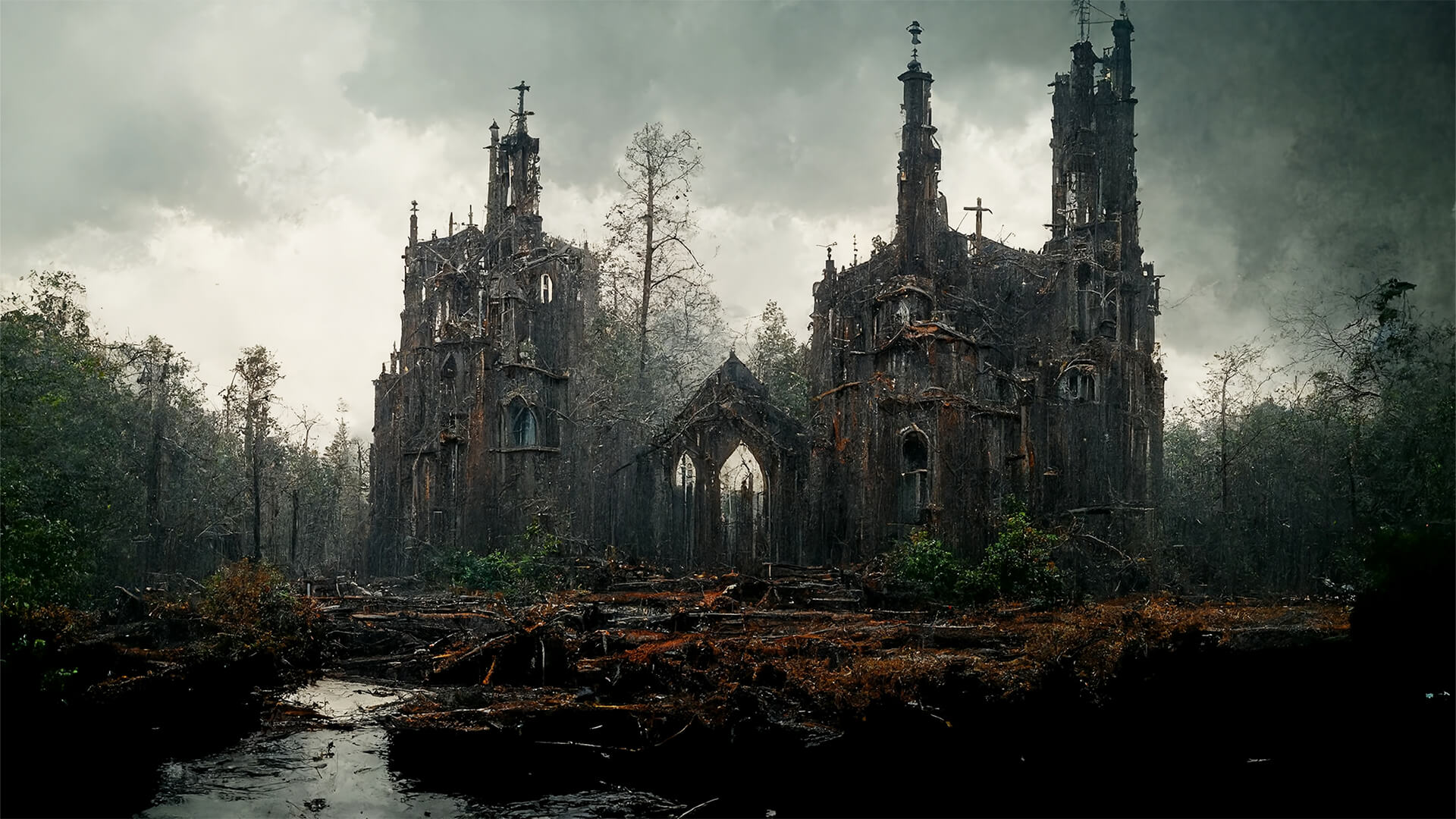
Autumn is well and truly here, and spooky season has arrived – it’s the perfect time to wrap up warm and watch a scary film. But why not go and explore some truly scary places for yourself? According to Google trend data, searches for ‘haunted hotels’ have risen by 588%, and searches for ‘Halloween break’ have seen an uplift of 5,500% in the past month, so Wizz Air present some of the spookiest and most haunted destinations for a scarily fun autumn break.
Italy
Italy has its fair share of haunted locations across the country, but some of the spookiest are in Rome. The Roman catacombs, although perhaps less well-known than the catacombs of Paris, are some of the oldest in the world. Several kilometres of subterranean labyrinths and passages containing thousands of bones are spread out underneath the outskirts of the city, as it was against Roman law at the time to bury the dead inside the city walls. There are more than sixty catacombs in Rome, but only five are open to the public – the Catacombs of San Sebastiano, San Callisto, Priscilla, Domitilla and Sant’Agnese.
Costanza Conti de Cupis was known having hands so beautiful that an artist made a mould of them. One day, she was told to be careful because she would lose her hands, so she became paranoid and locked herself up in her home. While in isolation, she pricked her finger with a sewing needle, which became infected, and she died of septicaemia after they amputated her hand. There have been sightings of her handprint on the window of her home in the Piazza Navona that can be seen illuminated in the moonlight.
The Ponte Sant’Angelo is said to be home to the ghosts of executioners that weren’t allowed to live within the city and could only cross the bridge on execution days, as well as Beatrice Centi, the daughter of a rich aristocrat who was banished by her father to the Castel Sant’Angelo, who has been seen on the bridge, holding her head in her hands.
Iceland
Famous for being the meeting place of Mikhail Gorbachev and Ronald Reagan during the Cold War, Höfði house is the most notoriously haunted house in Iceland. It’s said to be home to the ghost of Sólborg Jónsdottir, a young woman who poisoned herself after the owner, judge Einar Benediktsson’s verdict on an assault case.
Hólavallagarður cemetery was opened in 1838 as Reykjavík’s new cemetery, replacing a site that was previously used since Viking times. According to Icelandic folklore, the first person buried in a graveyard is the guardian of the site and will come back and protect all the dead that follow them – Hólavallagarður’s guardian is Guðrún Oddsdóttir, who died in 1838.
Hungary
Gellért Hill is a World Heritage Site and provides beautiful views of Budapest. It has secret rocky outcrops and healing springs, and is said to be the site of witchcraft, sorcery, and demons, dating back to witches’ covens in the Middle Ages.
Salgótarjáni út cemetery is a forgotten graveyard on the outskirts of the city. It’s not open to the public, and is guarded by stone gates and guard dogs, but tours can be arranged. It’s the oldest Jewish burial ground in the Pest side of Budapest but was largely abandoned after World War II. Many of the graves have been opened and robbed, and there have been claims of angered spirits hanging around at night.
Portugal
Sanatório de Valongo, just outside of Porto, was a sanatorium built for fifty tuberculosis patients in 1910. The ‘white plague’ epidemic spread, rapidly increasing the number of patients to five hundred. The patients were abandoned and left to roam the vast corridors until they all died. Their souls are said to haunt the halls, and visitors have heard cries of pain and seen movements in the shadows.
The Little Castle of São João do Estoril is one of the most haunted houses in Portugal. Several owners of the property have moved away in fear, and locals have seen strange occurrences because of the “evil powers” of the house. The daughter of the original owners accidentally fell into the sea, and people have seen her wandering around the property, holding a doll.
Spain
The Casa de las siete chimeneas, the house of seven chimneys, in Madrid, was the home of Captain Zapata and his wife, Elena. The soldier died at war, and shortly after, Elena was found dead in their bedroom, and her body disappeared without a trace. Her ghost is said to roam between the seven chimneys of the house.
A mansion in Malaga called Cortijo Jurado is known as being one of the most haunted buildings in Spain. It was owned by the Heredia family, who kidnapped young girls for satanic rituals. Visitors claimed to have heard mysterious voices and strange sounds that can’t be explained, and paranormal enthusiasts have said that the events that took place there have led to “inexplicable ghostly phenomena”.



















